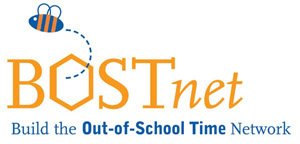
What is inclusion? In the classroom, inclusion means to put disabled students in typical classrooms rather than special education settings. Broadly speaking, Inclusion means to provide access to all people no matter what their ability. The issues is then, what is Inclusion when it comes to Out-of-School Time? Is it the "inclusion" of the classroom, or the "inclusion" of the wider disability rights movement?
There remains a controversy to Inclusion - there are many camps in this issue. There are those who claim that inclusion strips services and does not provide the needed supports. There are those who argue that inclusion can be more effective in certain environments. Then, there are those who look at inclusion as more than just traditional disabled and view inclusion as expanding to all needs and abilities in attitude and support. As we discuss inclusion, perhaps we will think more about the division on the issue as well as ways that programs can come together and provide quality supports.
If we look at inclusion as a fundamental aspect of a quality Out-of-School Time program, we then have to tackle what this inclusion means. More people are seeing inclusion as that of including the "traditional disabilities" (e.g. physical impairment, mobility, physical trauma, developmental), and the "new" disabilities (e.g. emotional, social, cognitive). Researchers, such as Dr. Siperstein, director of the Center for Social Development and Education at the University of Massachusetts Boston, Out of School programs may be able to offer a version of inclusion that is broad in definition as it is flexible in getting children and youth with disabilities not only to be next to typical children and youth but to become friends and develop meaningful long-term social interactions with their peers.
This growing evidence demonstrates that Out-of-School practitioners are on to something in seeing their programs as a space that is more fitted to using inclusion as a strategy than more formal settings. It may be that Out-of-School Time programs can adapt to the needs of children and youth and offer a wide range of activities for a version of inclusion - that itself is broad and inclusive.
These are, but the first words in what looks like a longer conversation.




No comments:
Post a Comment